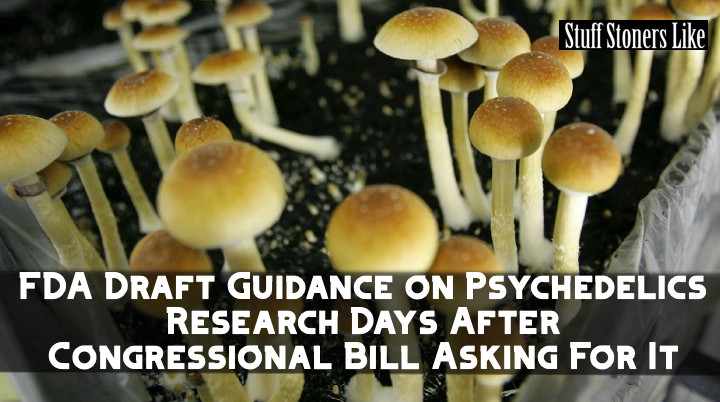
The Food and Drug Administration (FDA) has issued groundbreaking draft guidance focused on the considerations researchers should keep in mind when studying psychedelics. This move comes in response to the growing interest and initial promise surrounding psychedelics as potential therapies for various conditions.
The FDA’s draft guidance, published just two days after a bipartisan bill was filed to direct the agency’s issuance of such guidelines, spans 14 pages and offers researchers a framework for conducting studies that could lead to the development of psychedelic medicines.
A Step Toward Unlocking the Therapeutic Potential of Psychedelics
The release of the draft guidance signals the FDA’s commitment to facilitating the research and development of psychedelic drugs. Tiffany Farchione, the director of the Division of Psychiatry in the FDA’s Center for Drug Evaluation and Research, emphasized the need for sponsors to consider the unique characteristics of these drugs when designing clinical studies.
“Psychedelic drugs show initial promise as potential treatments for mood, anxiety and substance use disorders. However, these are still investigational products,” Farchione said in a press release on Friday. “Sponsors evaluating the therapeutic potential of these drugs should consider their unique characteristics when designing clinical studies.”“By publishing this draft guidance, the FDA hopes to outline the challenges inherent in designing psychedelic drug development programs and provide information on how to address these challenges,” she said. “The goal is to help researchers design studies that will yield interpretable results that will be capable of supporting future drug applications.”
According to Farchione, the aim of publishing the draft guidance is to outline the challenges inherent in designing psychedelic drug development programs and provide information on how to address these challenges effectively. The FDA hopes that this guidance will help researchers design studies that yield interpretable results, capable of supporting future drug applications.
Interest in psychedelics has grown exponentially in recent years, with various cities and states promoting research, removing criminal penalties, and implementing regulations around substances like psilocybin and MDMA. The FDA’s draft guidance encompasses important considerations throughout the drug development process, including trial conduct, data collection, subject safety, and new drug application requirements.
One crucial factor highlighted by the FDA is the psychoactive effects associated with many psychedelics, which may contribute to their potential for abuse. Additionally, entheogenic plants and fungi, such as psilocybin, are classified as Schedule I drugs under the Controlled Substances Act. Consequently, researchers are required to navigate a more complex registration process with the Drug Enforcement Administration to access these substances for study purposes.
The draft guidance also addresses the role of psychotherapy in psychedelic drug development, safety monitoring considerations, and the importance of characterizing dose-response and the durability of treatment effects.
The release of the FDA’s draft guidance marks a significant milestone in the advancement of psychedelic research. By providing researchers with a comprehensive framework and highlighting key considerations, the FDA aims to support the development of safe and effective psychedelic therapies. With continued scientific exploration and regulatory guidance, psychedelics have the potential to revolutionize treatment options for mood disorders, anxiety, and substance use disorders.
With psychedelic reform movements gaining traction and an evolving legal landscape, NIDA recognizes the need for comprehensive research to understand the impacts of changing laws surrounding psychedelics. By studying consumption trends, public health outcomes, and regulatory frameworks, researchers can contribute valuable insights to inform evidence-based policies and practices. The growing support in Congress further emphasizes the importance of exploring the therapeutic potential of psychedelics and their role in mental health treatment.
Leave a Reply